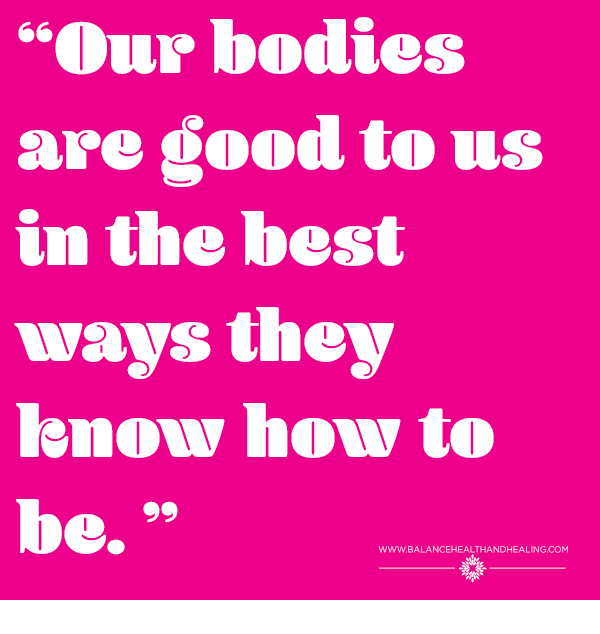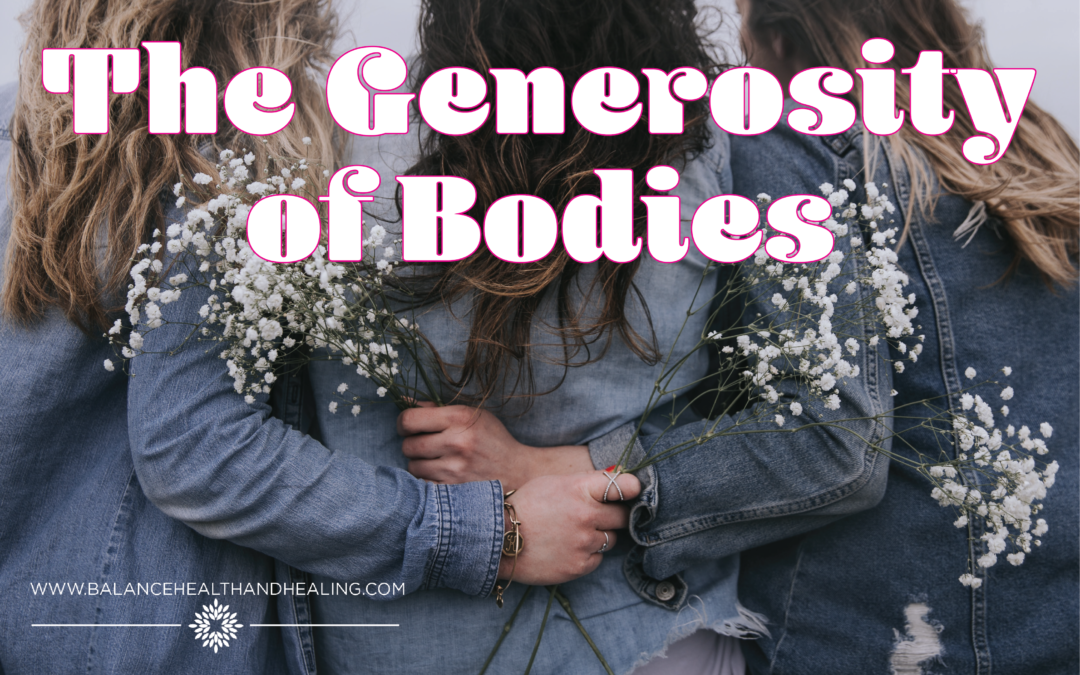Last summer, I spent the first week of July with a bandage on my thumb. I accidentally sliced my left thumb twice in one week–once while cutting a watermelon, and once while slicing a bagel. (As you may have gathered, this blog is probably not the place to look for tips on knife safety.) Even though the cuts on my thumb have long since healed, some key lessons from that week have stuck with me.
After both incidents with my thumb, I felt slightly frustrated with myself for not being more careful with knives. I felt annoyed that I would now have to deal with the discomfort of an injured thumb, and the inconvenience of having to bandage my cuts. As I grumbled to myself and cleaned up my thumb injury for the second time that week, I was unexpectedly struck with a moment of body gratitude.
 I realized that my body did not resent me for hurting it, even though I had made the same painful mistake twice in a row. My thumb didn’t say, “Well, I tried healing once and you messed up again. You’re on your own this time–you won’t get help from me.” Instead, my body did exactly what it was supposed to do to begin healing. My blood clotted to stop the bleeding, a mild sting reminded me to put on a bandage to protect the broken skin, and my cells immediately began rebuilding to close the wound. Quietly, automatically, my body did its work.
I realized that my body did not resent me for hurting it, even though I had made the same painful mistake twice in a row. My thumb didn’t say, “Well, I tried healing once and you messed up again. You’re on your own this time–you won’t get help from me.” Instead, my body did exactly what it was supposed to do to begin healing. My blood clotted to stop the bleeding, a mild sting reminded me to put on a bandage to protect the broken skin, and my cells immediately began rebuilding to close the wound. Quietly, automatically, my body did its work.
This simple moment left me with a profound insight: our bodies do not withhold healing from us. They are not spiteful, resentful, or vengeful. Our bodies do not hate us or punish us for mistakes or injuries, intentionally or unintentionally inflicted. Our bodies simply do the best they can to heal, to serve us, and to allow us to be here. Bodies are all different in their abilities, histories, shapes, weaknesses, and strengths. All bodies are good bodies. Our bodies are good to us in the best ways they know how to be. Bodies of all types and abilities work at the fullest of their individual capacities from moment to moment.
 Now, while our bodies are unquestioningly generous to us in doing the best they can, this is not to say that they are not affected by the way they are treated. Our bodies are perpetually responsive to the things they experience. For example, when our bodies are deprived of nourishment (for any reason), they respond by trying to protect us–either by overconsuming when nourishment becomes available (AKA bingeing), or by slowing or shutting down functions in order to preserve energy.
Now, while our bodies are unquestioningly generous to us in doing the best they can, this is not to say that they are not affected by the way they are treated. Our bodies are perpetually responsive to the things they experience. For example, when our bodies are deprived of nourishment (for any reason), they respond by trying to protect us–either by overconsuming when nourishment becomes available (AKA bingeing), or by slowing or shutting down functions in order to preserve energy.
When our bodies make changes that feel uncomfortable to us, it is not because they hate us or are out of control. Rather, our bodies are doing what is needed to protect and preserve their functions. We can’t deprive or otherwise harm our bodies without our bodies noticing what’s going on, and responding accordingly! Similarly, when we are kind and attentive to our bodies’ needs, they function at greater capacity.
Your relationship with your body may be difficult for many reasons. Or, perhaps your relationship with your body is in a good place. Maybe it’s some of both. Wherever you are in your relationship with your body, I have an invitation for you: take some time to acknowledge the ways your body is good to you. You may find it helpful to write down a list of your thoughts. My hope for you is that the practice of noticing the generosity of your body will provide you with healing and growth, even in moments when your experience in your body is difficult or painful.

